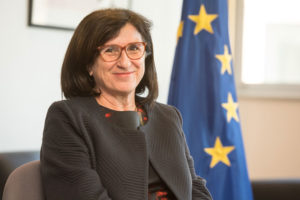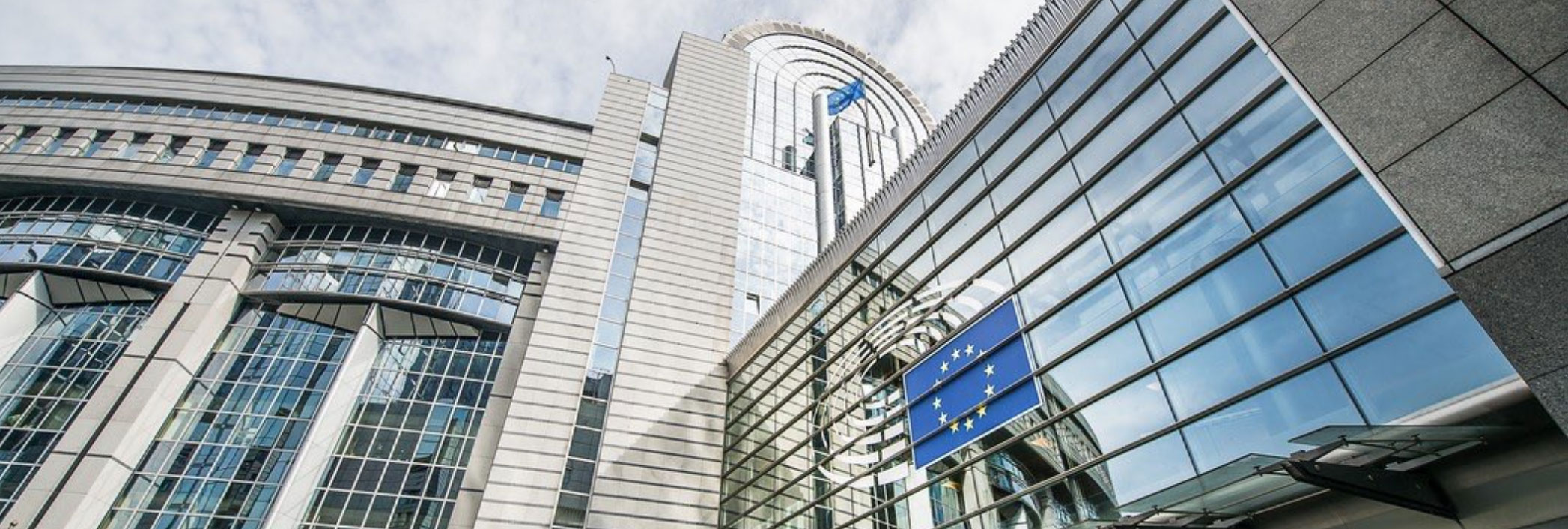
Your mission is to ensure safe and healthy food in Europe, what are the means implemented?
“Ensuring safe and healthy food” is not the European Commission’s sole responsibility! Nevertheless, “Europe” in general can be considered as the common link of a chain that goes from production to consumers, “from farm to fork”. This is a key role because Europe intervenes throughout food production, by authorizing, or not, additives, pesticides, GMOs, among others, which are used by producers. Food labeling is also regulated at European level, allowing consumers to be informed about product composition, but also the presence of allergens or, for fresh products, their origin. The key role of economic operators in this chain must be emphasized: it is their responsibility that the products put on sale are healthy. And it is the responsibility of national authorities (the DGCCRF in France for example) to “monitor” this chain at the national level, as well as at the borders of the Union. Europe finally intervenes further down the line if a food alert concerns several Member States.
It is therefore a complex chain, but one where everyone has a role to fulfill.
Is the legislation enacted sufficient?
It is all the more necessary because it covers a multitude of activity types! The numbers speak for themselves. From an economic point of view, the food chain, including production and distribution, is the most “integrated” sector of the internal market: 44 million people are employed in this sector, which exports for nearly 140 billion euros each year, thus constituting one of the European Union’s strong points in international trade.
The challenge we face is twofold: on the one hand, the need to adapt our legislation to new challenges, be they technological or societal, and, on the other hand, the implementation of existing legislation by economic operators and Member States that is not always effective.
The food alert system is 40 years old. Is it efficient and does it respond to the risks of today’s society?
Indeed, the alert system was created in 1979, when trade increased in what was then the European Economic Community, and therefore well before the mad cow crisis that led, in the 2000s, to the implementation of a very detailed legislation in the food sector.
We tend to forget about it, but food insecurity has remained very high for centuries: deaths from food contamination have been in the thousands every year. This is no longer the case today. The last major food crisis in the Union dates back to 2011, when more than 50 people died in Germany following an epidemic due to the presence of eColi on sprouted seeds.
“Zero risk” does not exist, especially as the European food chain is also under the threat of potential fraud, but this alert system is effective. It allows economic operators and Member States to immediately relay any suspicion or alert on products coming from the Union or arriving at our borders. These alerts are followed by withdrawals of the products if necessary, all in the name of the consumer’s safety. It is also an internationally recognized tool.
Consequently, the Union practically has the means to detect and manage food risks.
As a new Commission prepares to take office, what are the major challenges in the years ahead for the food sector?
There are many challenges in this area, starting with the food chain’s sustainability. With a world population that is expected to approach 10 billion by 2050, we already know that it will be necessary to produce 70% more calories in order to feed everybody! At present, food production in the Union accounts for 11% of our greenhouse gas emissions. And even as the world’s leading agricultural power, the Union is wasting a fifth of its production. How can we waste so much food when tens of millions of people in the Union do not have access to a decent meal every day?
In addition to environmental issues, there is increasing consumer demand for an even healthier, animal-friendly diet that is more “understandable” (including more information through labeling or digital tools).
This is why the food issue, via a farm-to-fork strategy, will be one of the key elements of the “Green Deal”, that will soon be proposed by the Commission chaired by Ursula von der Leyen.


















